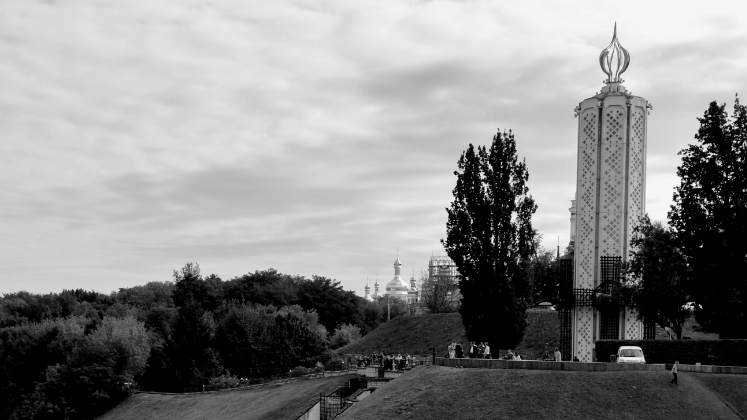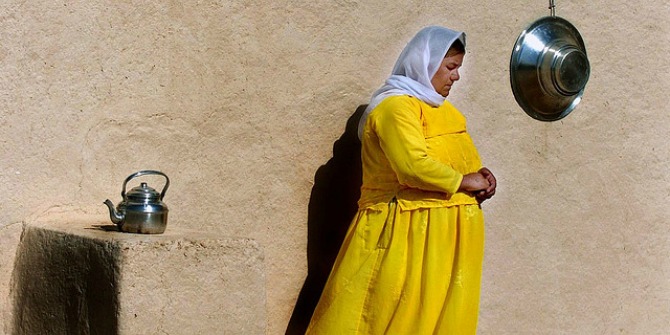75 years after the publication of the Beveridge report, LSE Festival Beveridge 2.0 (Mon 19 Feb – Sat 24 Feb 2018) offers a week of public engagement activities exploring the ‘Five Giants’ identified by Beveridge in a global 21st-century context. Tickets to all the events, which are free and open to all, can be booked here.
On Wednesday 21 February, novelists Louise Doughty, author of such books as Apple Tree Yard, and Winnie M. Li, LSE PhD student and winner of the Guardian’s Not the Booker Prize for Dark Chapter, which drew upon her own lived experience of rape, discussed the topic of ‘Writing Fiction to Dramatise Inequality’: listen to the podcast here. Ahead of the event, Winnie M. Li reflected on the backdrop to Dark Chapter and six other works of fiction that influenced her process of writing about sexual violence.
Please be aware that this feature contains detailed discussion of sexual violence.
 Image Credit: (Dylan_Pane CC BY 2.0)
Image Credit: (Dylan_Pane CC BY 2.0)
Writing Dark Chapter, and 6 Other Fiction Books that Dramatise Inequality
Within weeks of my own rape, I knew I wanted to write a novel about it.
In April 2008, at the age of 29, I was violently attacked and raped in a Belfast park by a 15-year-old stranger. That single event changed the course of my life, ending my previous career, and leading directly to my current work as an author, activist and PhD researcher at the LSE.
But I’d always been a writer, long before I became a rape victim. And when I turned to writing about that experience, I knew only fiction would let me explore it in the way I’d envisioned: by imagining the perspective of the other protagonist in the story, my perpetrator. What kind of life had led this teenage boy to assault and rape me that day?
Dark Chapter is my creative attempt to provide a version of an answer — and try to make sense of a life-changing trauma. So the novel moves back and forth between the two voices of victim and perpetrator, from their different gendered childhoods up to the crime, then through the police search, the trial and afterwards.
Sexual violence, like any form of abuse, is very much about power and privilege. And thus, it is ultimately about inequality. If I were a six-foot-tall white man hiking on my own, I would not have been raped that day by a 15-year-old boy. In fact, all the privilege I’d gained in 29 years through my education and career (my social and cultural capital, as Pierre Bourdieu would say) still wasn’t enough to protect me from becoming a victim of sexual violence. But inequality cuts across our experience in different ways. That same social and cultural capital gave me helpful resources towards recovery (i.e. the communication skills to navigate a daunting criminal justice system, a boss who paid for counselling afterwards, friends who lent me money), which may not be as accessible for other victims.
It also gave me the resources to examine this issue professionally and intellectually in my current work. And so, reading and writing have been a fundamental part of my own journey towards reframing the way we think about sexual violence. Here are six books that were important stepping stones for me, listed in the order in which I read them. After all, our reading is embedded within our experience of life — to separate the two would be to ignore the multilayered ways in which we absorb and understand the world.
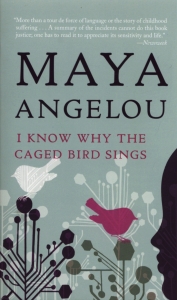 I Know Why the Caged Bird Sings by Maya Angelou
I Know Why the Caged Bird Sings by Maya Angelou
I read this in ninth grade for my English class (fifteen years before my own rape), and it was the first time I read about sexual violence from the survivor’s point-of-view. But at the time what stayed with me was the absolute humanity of Angelou’s vision. Both laugh-out-loud funny and heartbreaking, her memoir depicts her childhood as a poor black girl in the segregated American South. At the age of eight, Angelou was raped by her mother’s boyfriend. When she disclosed her abuse, he was jailed for only one day, then later murdered by her uncles. Shocked by this man’s death, Angelou went mute for nearly five years, only to emerge later as a powerful author and artist, whose voice affirmed the ability to survive sexual violence and make a lasting impression on the world.
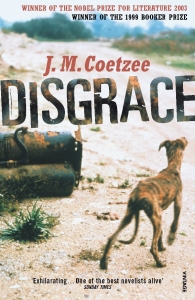 Disgrace by J.M. Coetzee
Disgrace by J.M. Coetzee
I first read this Booker Prize-winning novel in 2006 (two years before my rape). Set in post-apartheid South Africa, it narrates the experience of a disgraced, white university professor and philanderer, whose grown daughter is later gang-raped in a raid on her farm by black men. These events and their aftermath are only ever seen from the professor’s perspective. I drew a lot from Disgrace’s uncompromising use of point-of-view, written in close third person, when it came to writing the assault in Dark Chapter from the perspectives of both the victim and the perpetrator. But Coetzee’s novel also shows that a criminal act is embedded in the sociological — race, class, gender, education: all impact the actions of the perpetrators, the victim and her father. Thus, it raises complex questions about responses to violence, while also implying that misogyny and an unwillingness to consider others equally can span the breadth of our society.
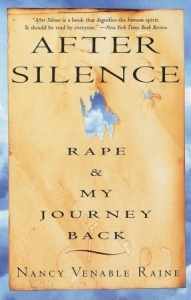 After Silence: Rape and My Journey Back by Nancy Venable Raine
After Silence: Rape and My Journey Back by Nancy Venable Raine
I was a mess for a whole year after my rape, and one of my saving graces was stumbling upon this memoir in the library of a small New England town. For me, it remains the most powerful of rape memoirs, as Raine starts the narrative with her own rape by a stranger, who broke into her home when she was 39. The aftermath, the lack of legal follow-through, the widespread impact on her life — reading this all validated my own experience, assuring me that others had been through the same hell I was going through, and they had somehow made it to the other side.
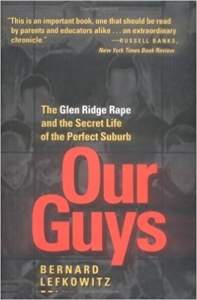 Our Guys: The Glen Ridge Rape and the Secret Life of the Perfect Suburb by Bernard Lefkowitz
Our Guys: The Glen Ridge Rape and the Secret Life of the Perfect Suburb by Bernard Lefkowitz
I read this book voraciously, two summers after my own attack, when I was backpacking around Estonia and Latvia, trying to reclaim my love of travel. But the book describes events that I had first heard about when I was an adolescent, growing up in northern New Jersey. In a place not too far from my own hometown, a teenage girl with mental disabilities was gang-raped by a group of high school athletes in her neighbourhood. This riveting non-fiction account explores the culture of privilege which protected the perpetrators while offering no protection to the victim. I was prompted to think about the criminal justice system: how it is so influenced by forms of social capital, and thus often fails to deliver real justice.
 The Butcher Boy by Patrick McCabe
The Butcher Boy by Patrick McCabe
Five-and-a-half years after my rape, I finally decided to start writing a novel inspired by it. Because I wanted to write half of the book from the rapist’s perspective, I knew I would need to use an entirely different voice and vocabulary to create his character so readers could distinguish between his violent, underprivileged upbringing and the educated, middle-class worldview of the victim. The Butcher Boy provided the key to seeing how language and dialect can capture the voice of a marginalised, misunderstood teenager in Ireland. McCabe’s protagonist ultimately turns to violence because he is so isolated and unsupported in his young life, and so painfully aware of the class inequalities in our society.
Apple Tree Yard by Louise Doughty 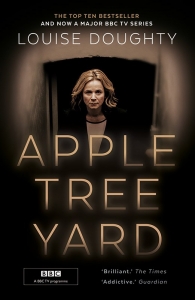
A few months into working on Dark Chapter, it occurred to me that I might be able to draw from the crime fiction genre. Someone had suggested Apple Tree Yard, and I was struck by Doughty’s very realistic portrayal of an unexpected rape and its aftermath, all told from the survivor’s perspective. Her protagonist, Yvonne, is privileged and highly educated, but that doesn’t spare her from the gender inequality which marks her life experience. The novel’s structure was also a helpful guide. The suspenseful courtroom scene is a corker, and served as a masterclass in how I could write a trial that would form the narrative climax of Dark Chapter. I think we’d all like to believe that the legal aftermath of rape will be a fair and equal process for all, when in reality it isn’t.
Needless to say, I’m thrilled to be exploring this issue and many others on the panel ‘Writing Fiction to Dramatise Inequality’ with Louise Doughty for LSE Festival: Beverage 2.0. In many ways, it will be like coming full circle for me as an author, survivor and reader.
Winnie M Li is an author, activist and PhD researcher at LSE. Her debut novel, Dark Chapter, is inspired by her own experience of rape. It won the Guardian’s Not The Booker Prize 2017 and will be translated into eight languages. Her PhD research in the Department of Media and Communications explores the uses of social media by rape survivors. She is also Co-Founder and Artistic Director of the Clear Lines Festival. http://winniemli.com Twitter: @winniemli
Note: This feature post gives the views of the author, and not the position of the LSE Review of Books blog, or of the London School of Economics.


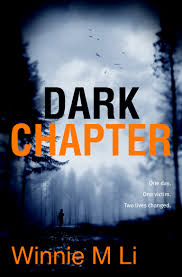 Find this book:
Find this book: 
